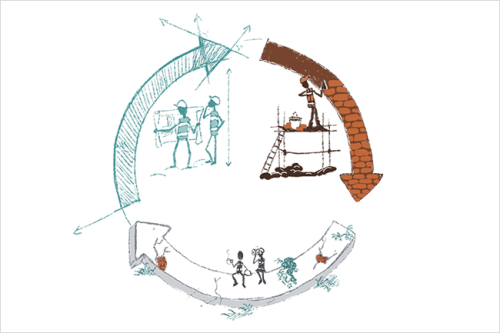Final Report on the Strengthening the Implementation of Responsible Fatherhood Programs (SIRF) Study
Strengthening the Implementation of Responsible Fatherhood Programs (SIRF)

Overview
Since 2006, Responsible Fatherhood programs across the country have received federal funding administered by the Administration for Children and Families, Office of Family Assistance within the U.S. Department of Health and Human Services. These programs aim to promote positive father-child interactions, improve parents’ relationship with each other and their capacity to parent as a team, and build fathers’ economic stability. Since their inception, Responsible Fatherhood programs have conducted capacity-building activities, such as performance management, and have undergone local and federal evaluations aimed at building evidence. These activities and evaluations have uncovered a number of implementation challenges, including recruiting fathers, enrolling them in services, and keeping them actively engaged in services so they can realize their goals.
MDRC’s Strengthening the Implementation of Responsible Fatherhood Programs (SIRF) is studying ways to help programs overcome these hurdles using learning cycles, which use an iterative approach to identify implementation roadblocks, design and test solutions, interpret findings, and adapt practices and measurement. SIRF seeks to improve Responsible Fatherhood programming using a continuous cycle of evidence building, implementation, and adaptation that is attuned to the real-world needs of the people who provide the services and the fathers who use them. For example, if a program identifies engaging fathers in services as a challenge, the SIRF project, in partnership with the program, would identify possible solutions, implement the solution, examine the effect of the solution on fathers’ engagement, and adjust. This process could be repeated multiple times over the course of the project, depending on the intensity and scope of the solution. This type of effort is sometimes known as “rapid cycle evaluations” or “rapid learning methods.”
Additional Project Details
Agenda, Scope, and Goals
On behalf of the U.S. Department of Health and Human Services, Administration for Children and Families (ACF), MDRC has assembled a team of leading experts in the field with experience using learning cycles and providing programmatic technical assistance to Responsible Fatherhood programs. Over the first year of SIRF, the research team identified common implementation challenges and potential solutions for Responsible Fatherhood programs. Activities included a thorough review of the literature and input from ACF, content experts, and stakeholders (including Responsible Fatherhood program participants and program operators). Through a process involving introductory program conversations and a tailored customer journey mapping exercise, the research team selected 10 Responsible Fatherhood programs to participate in learning cycle activities. Each program will focus its learning cycle work on recruiting fathers, enrolling them in services, or keeping them actively engaged in services so it can realize its own goals.
The learning cycles began in mid-2021. The SIRF study team envisions this work as a collaboration between researchers and practitioners so that each program’s learning approach can be tailored to its unique context and service structure. This process is represented by three words: learn, do, reflect. It involves training program staff on the selected solutions (learn), supporting solution implementation (do), and examining the results to decide on how best to refine the solution in the subsequent cycle (reflect).
The study findings will be disseminated on an ongoing basis throughout the course of the project, which is slated to end in 2024.
Design, Sites, and Data Sources
The learning cycles will vary in their design, timeframe, and structure—that is, how they fall along a spectrum from more practitioner-driven to more researcher-led, which will depend upon unique contextual factors associated with each site and the associated learning objectives. Through these activities, SIRF seeks to build evidence to help Responsible Fatherhood programs deliver more effective services and set the stage for potential future studies that could measure the effects of the strengthened programs.
Data will be collected from nFORM (Information, Family Outcomes, Reporting, and Management), the management information system developed for Healthy Marriage and Responsible Fatherhood federal grantees, as well as from interviews with program staff and Responsible Fatherhood program participants.
Featured Work
A Summary of Findings from the Strengthening the Implementation of Responsible Fatherhood Programs Study
How Fatherhood Programs Used Learning Cycles in Efforts to Improve Participation Outcomes









